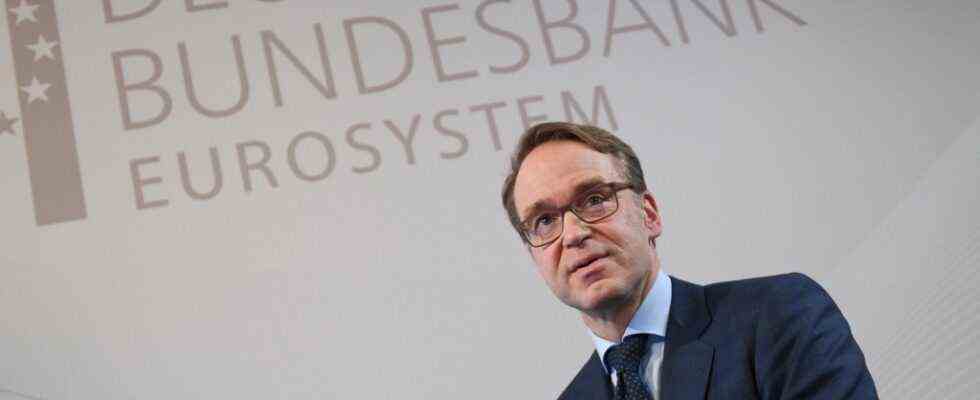After almost eleven years at the helm, the economist surprisingly resigned from office at the end of the year. He is an advocate of a strict monetary policy and says that Europe must not neglect the risk of inflation.
Jens Weidmann is stepping down as head of the Bundesbank. He asked Federal President Frank-Walter Steinmeier to dismiss him from office on December 31, 2021, announced the Bundesbank. He is leaving the house for personal reasons. “I have come to the conclusion that more than ten years is a good time to start a new chapter – for the Bundesbank, but also for me personally,” Weidmann wrote in a letter to the staff of the German central bank. He took over its management in May 2011.
The 53-year-old studied economics and did his doctorate on “Monetary Policy and European Currency Integration”. At the beginning of 2006, Chancellor Angela Merkel (CDU) made Weidmann head of the economic and finance department in the Chancellery. He was 37 years old at the time and relatively unknown outside of expert circles. As the successor to Axel Weber, he then moved to the top of the Bundesbank in 2011.
As its president, he also sat on the Council of the European Central Bank (ECB). There he appeared as one of the sharpest critics of what he believed to be the overly generous monetary policy of the ECB and often advanced to become an opponent of the then ECB President Mario Draghi. The criticism of his course caused Weidmann some anger and probably also dashed his hopes for the office of ECB chief. In the south of Europe, the German had hardly any advocates and had to give way to the French Christine Lagarde.
The environment in which the bank operates has changed a lot, Weidmann now wrote to the workforce. “The financial crisis, the national debt crisis and, most recently, the pandemic have led to decisions in politics and monetary policy that will have a long-lasting effect.” It was important to him “that the clear, stability-oriented voice of the Bundesbank remains clearly audible”. The Bundesbank was able to contribute to the discussions about the right lessons from the crisis and about the regulatory framework of the monetary union.
At the same time, Weidmann warned that the ECB should not lose sight of “prospective inflation risks”. To this end, monetary policy must pay attention to its tight mandate and must not “get caught in the tow of fiscal policy or the financial markets”. “This remains my firm personal conviction as well as the great importance of the independence of monetary policy.”
The Bundesbank is currently assuming inflation to persist and in its latest monthly report warned that climate change is also endangering price stability in the euro system. The real economy and inflation would become more susceptible to fluctuations in the future as a result of extreme weather events. At the same time, Weidmann made it clear that the ECB should not pursue its own climate policy: “We are not entitled to correct or anticipate the results of the democratic decision-making process of parliaments and governments,” he said recently. In July, the Governing Council decided to incorporate climate protection aspects more strongly into its framework for action.

